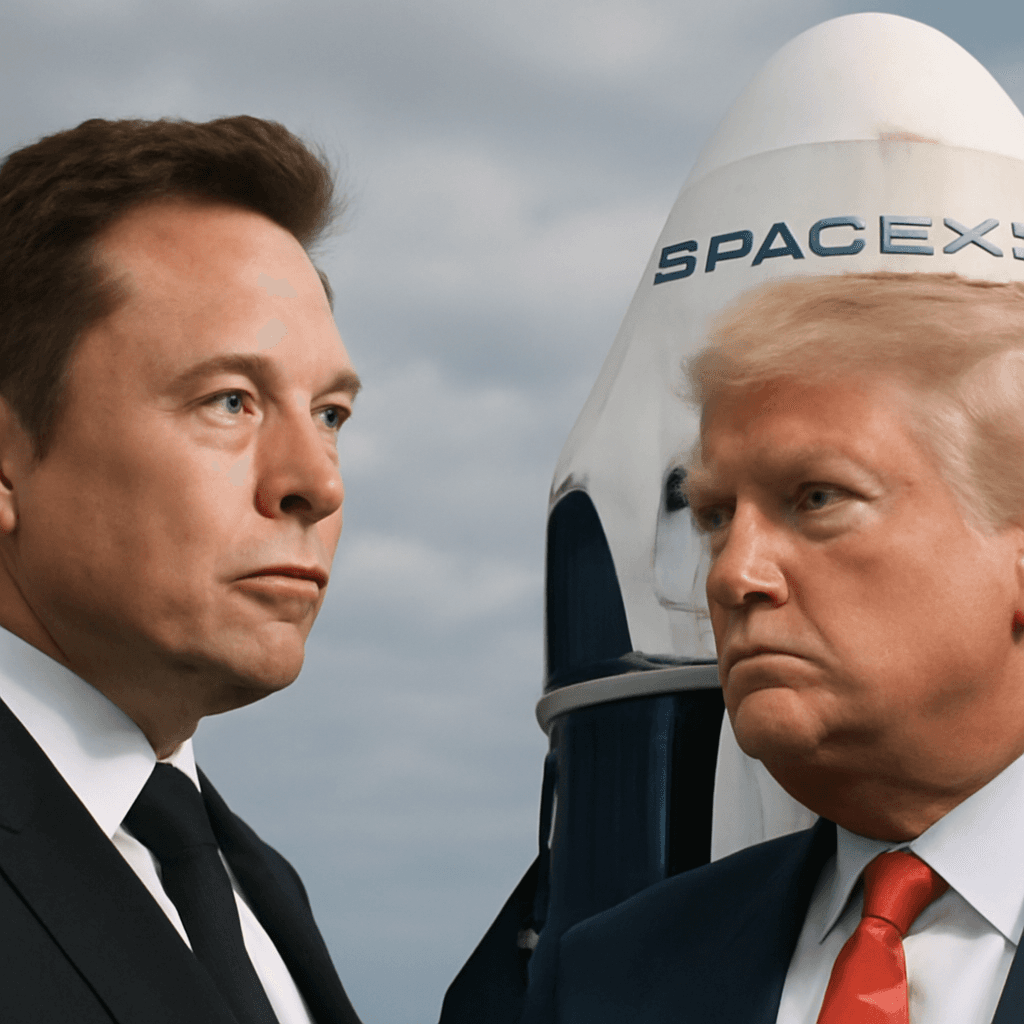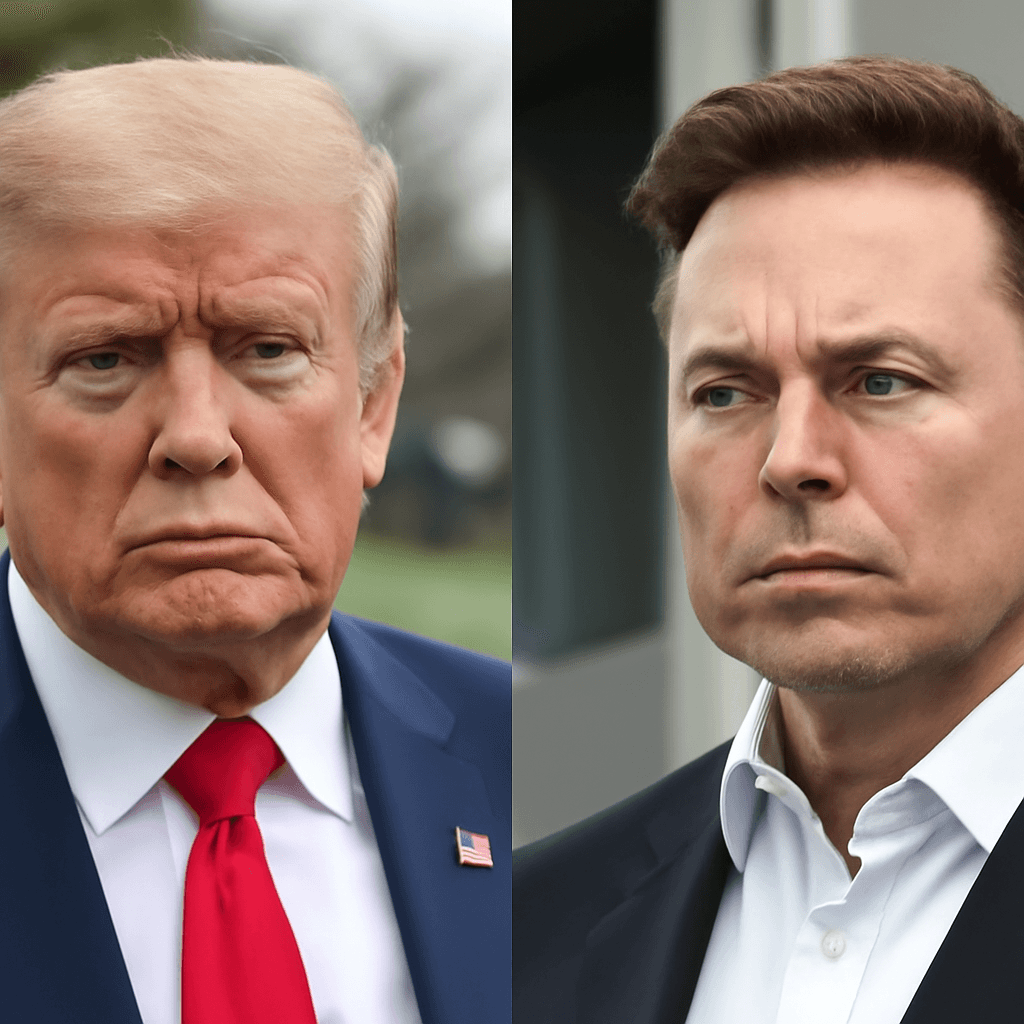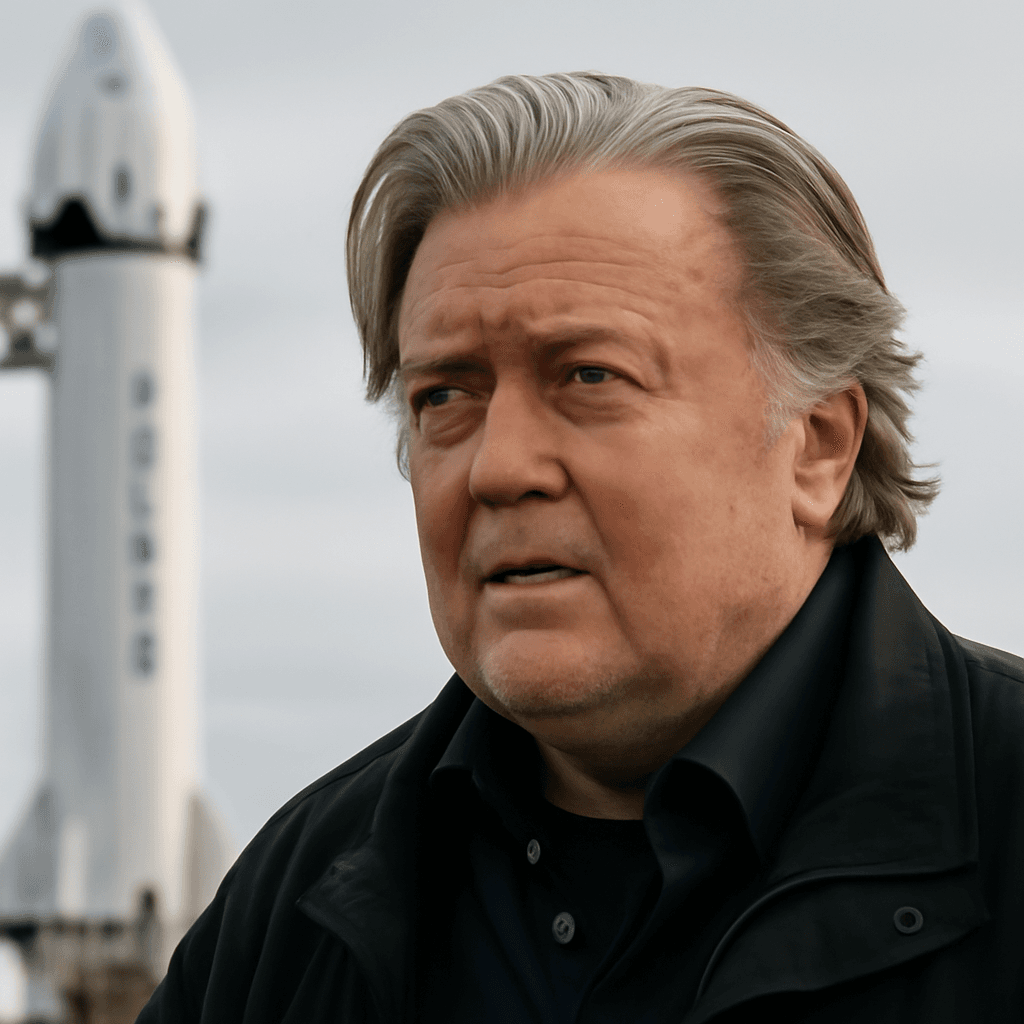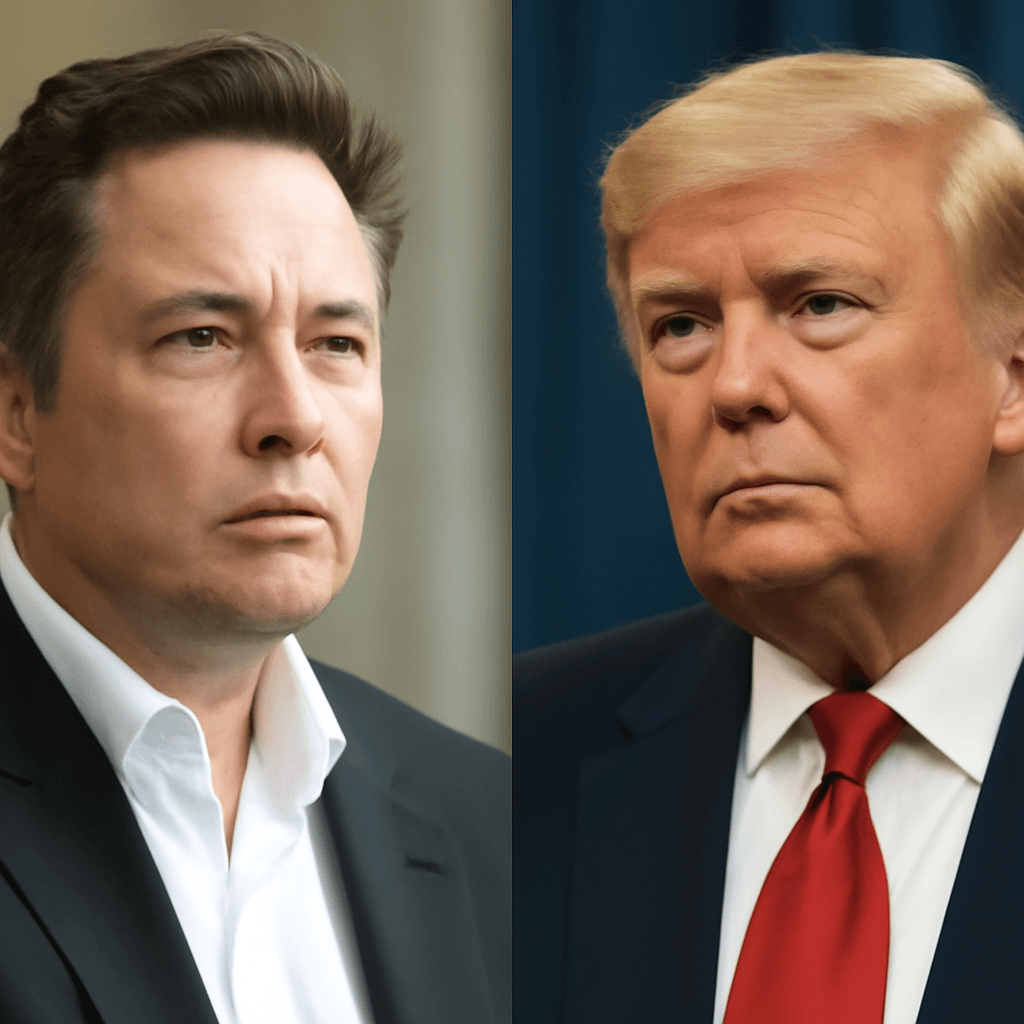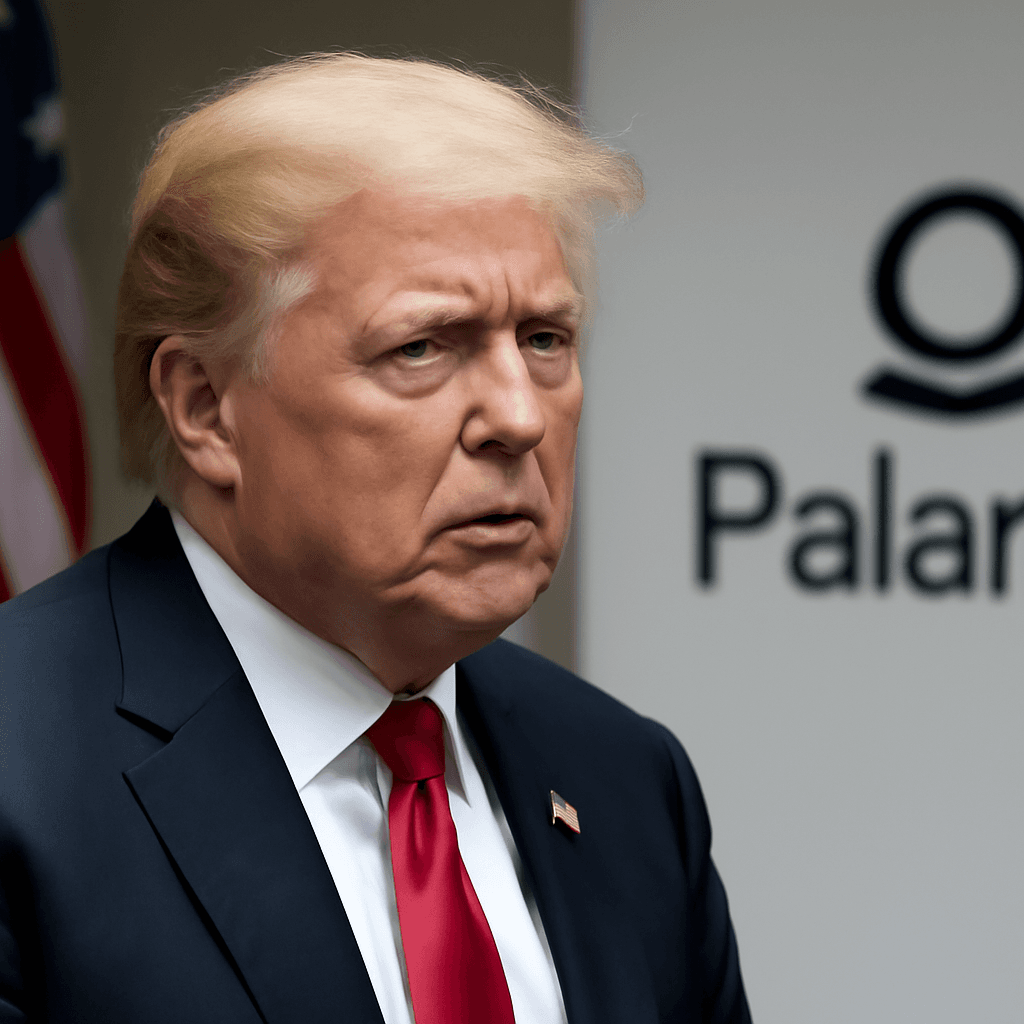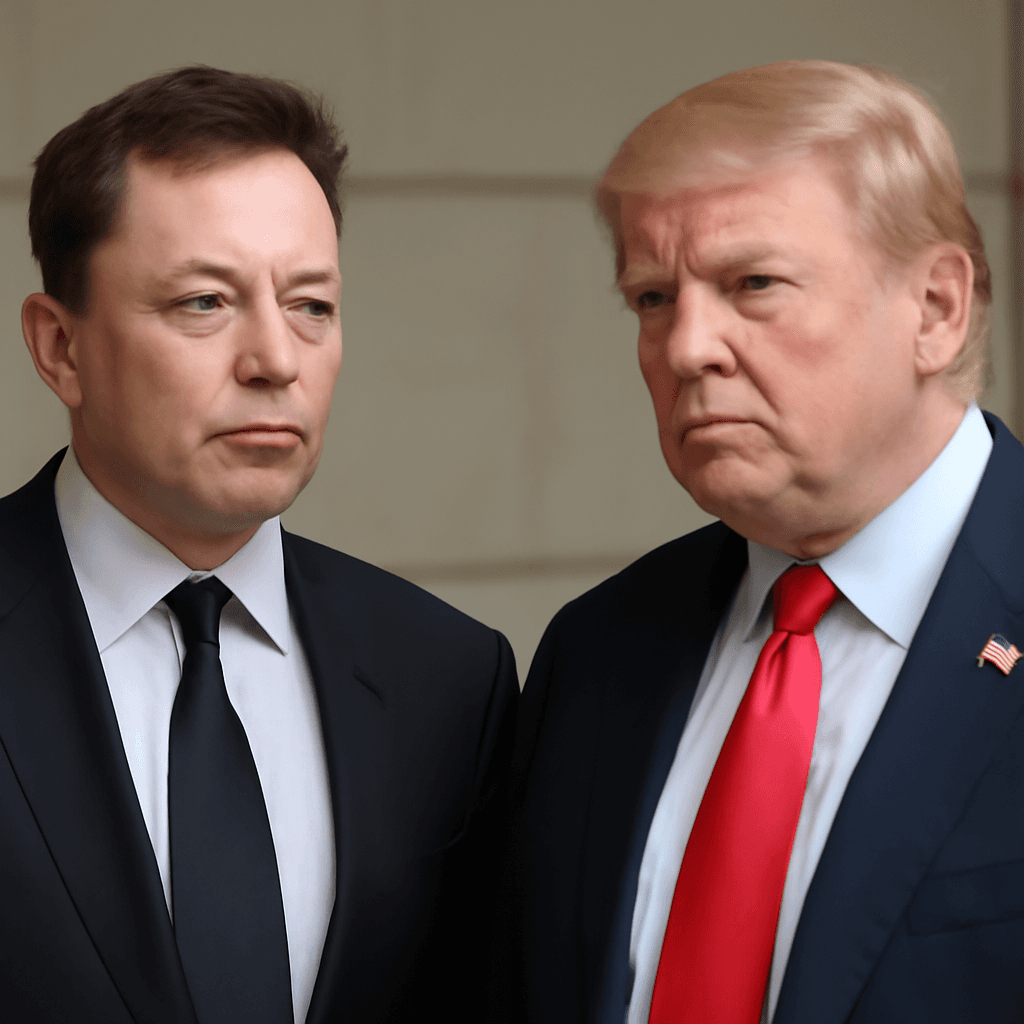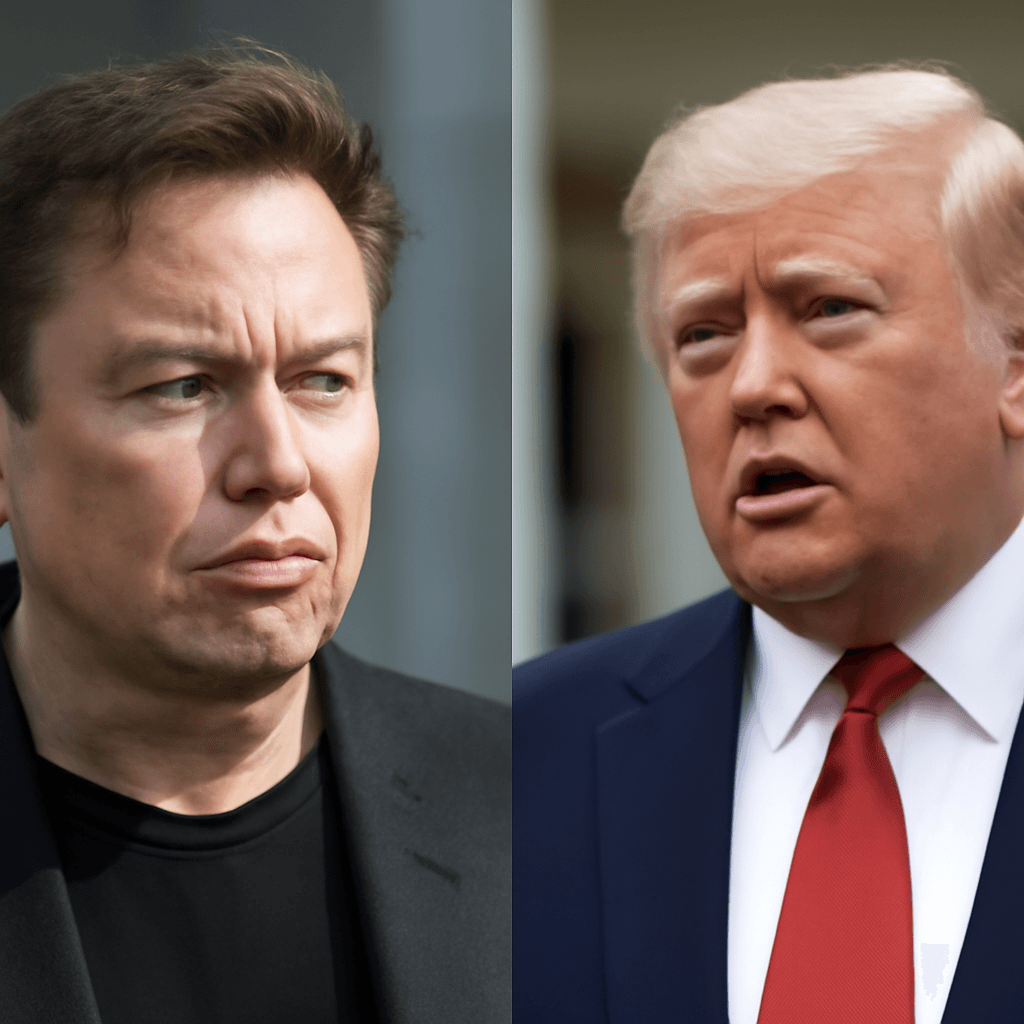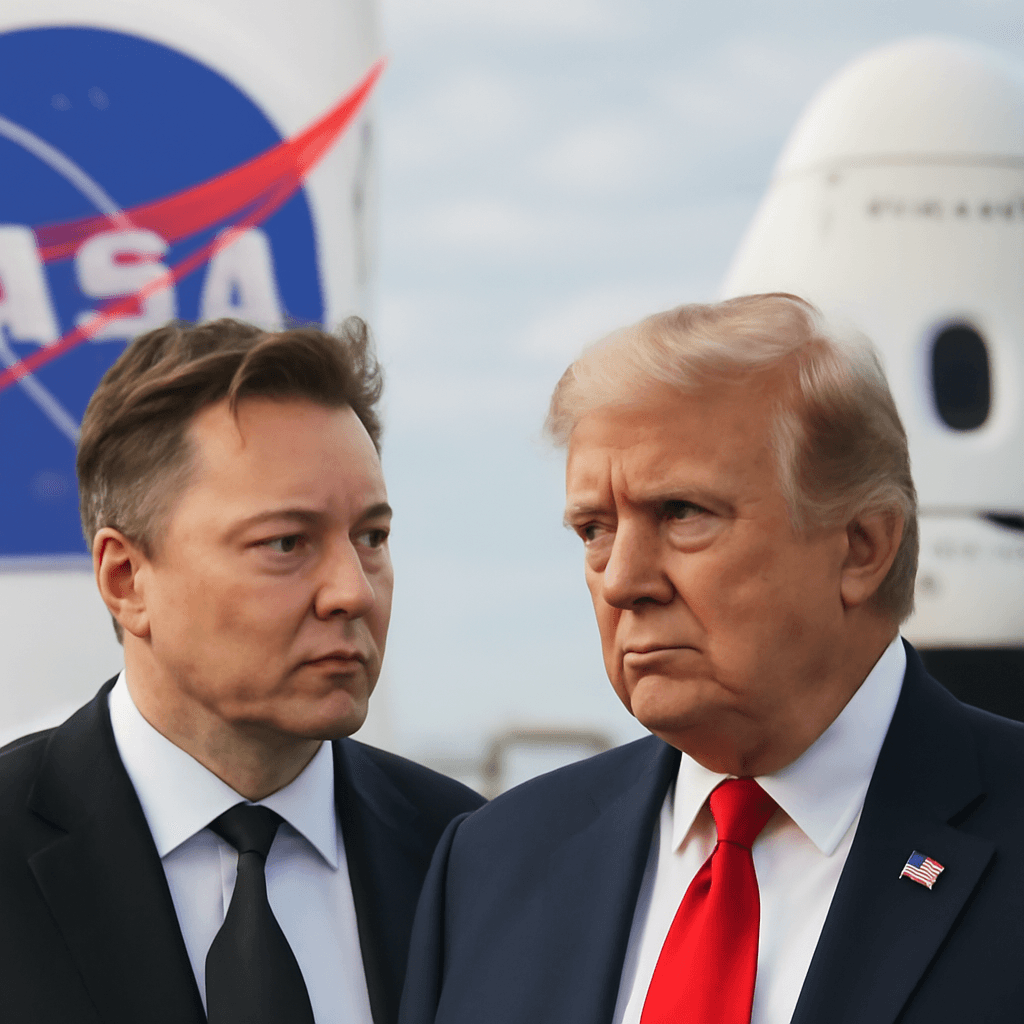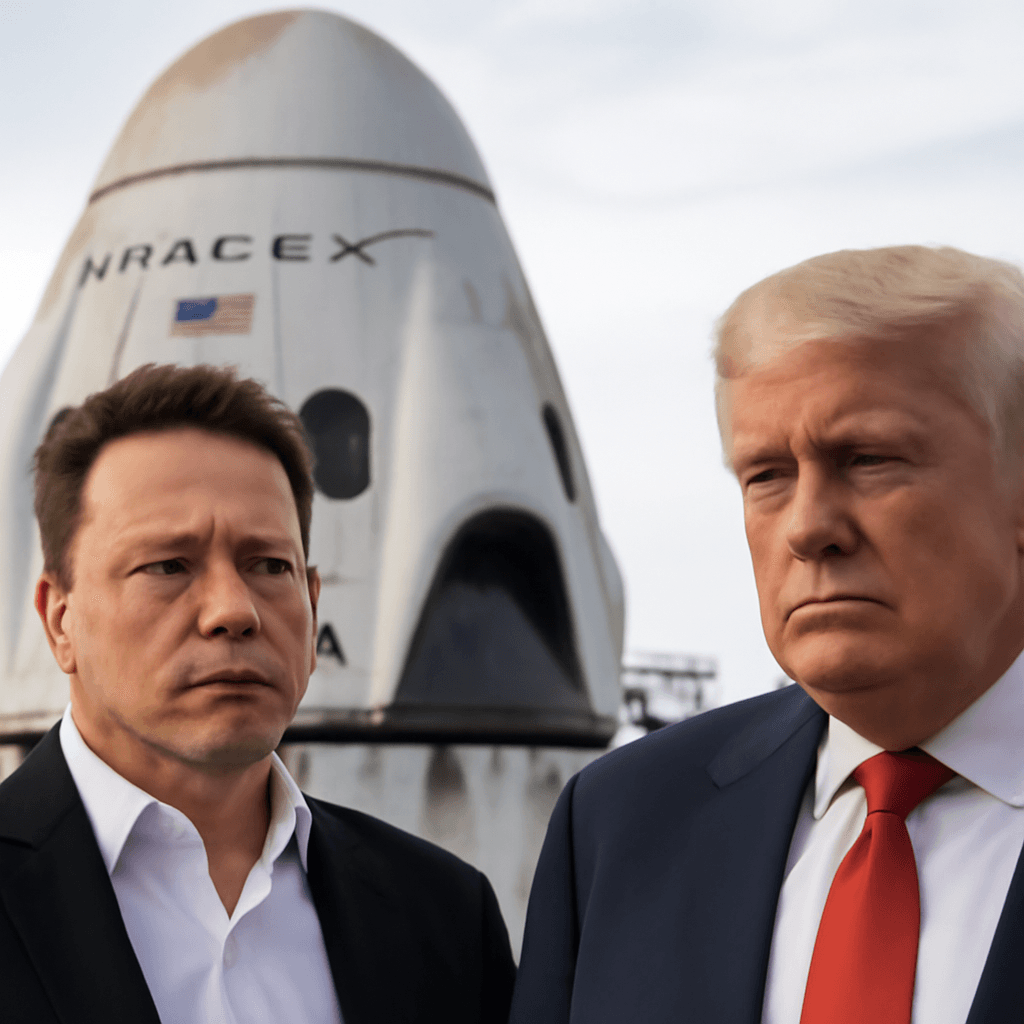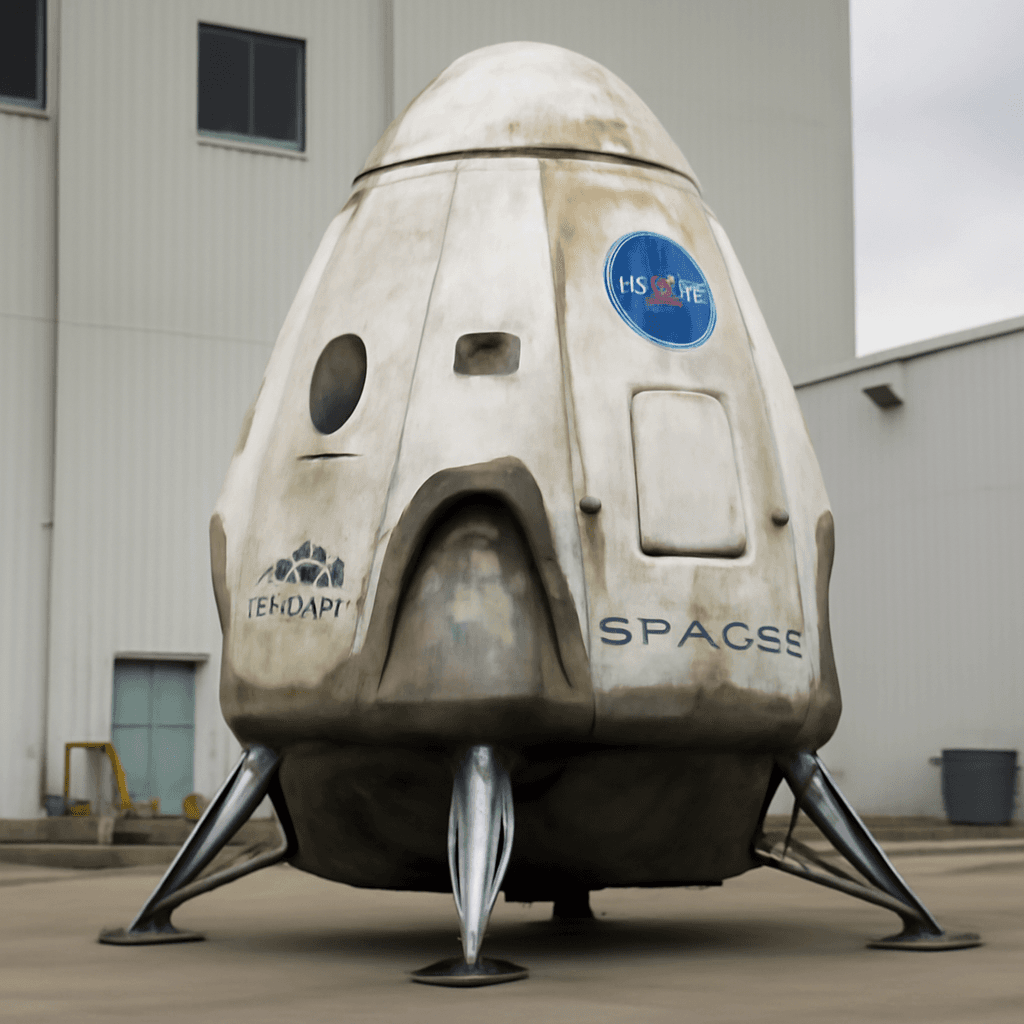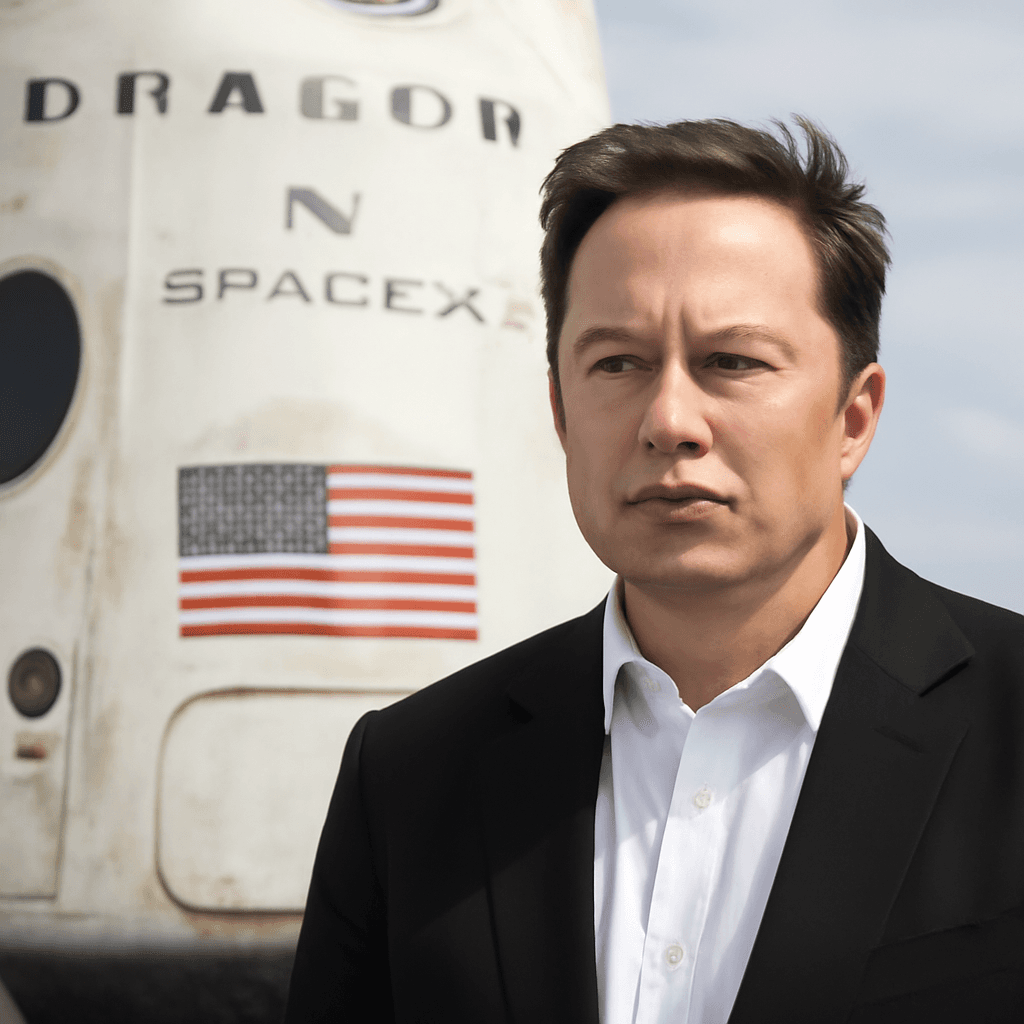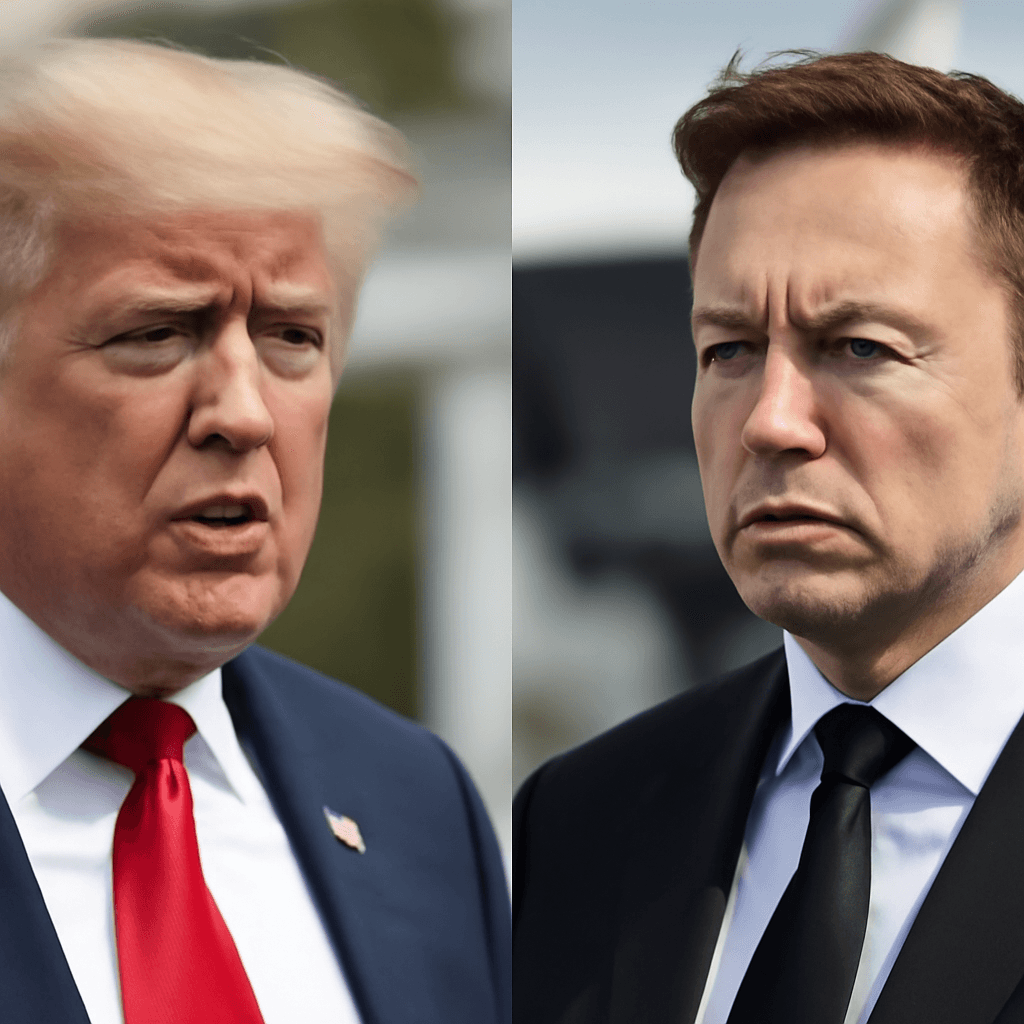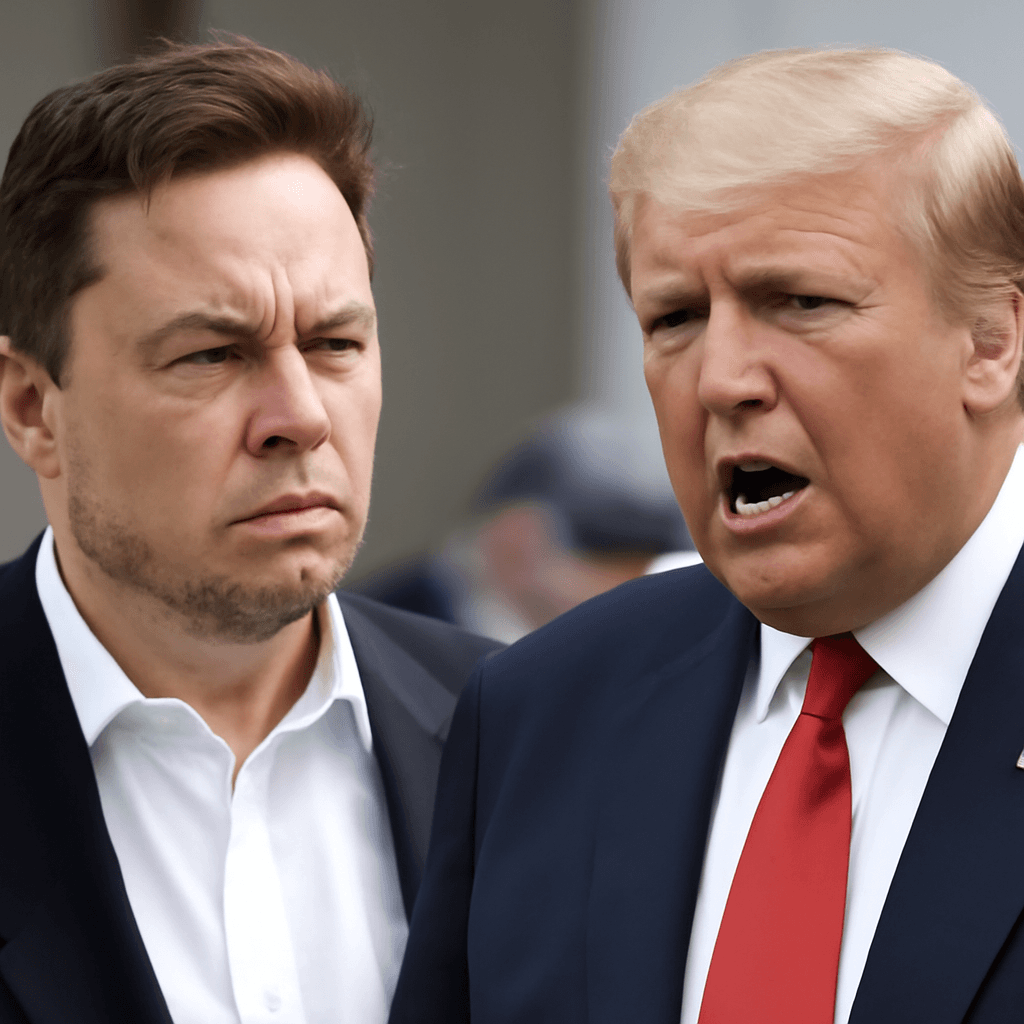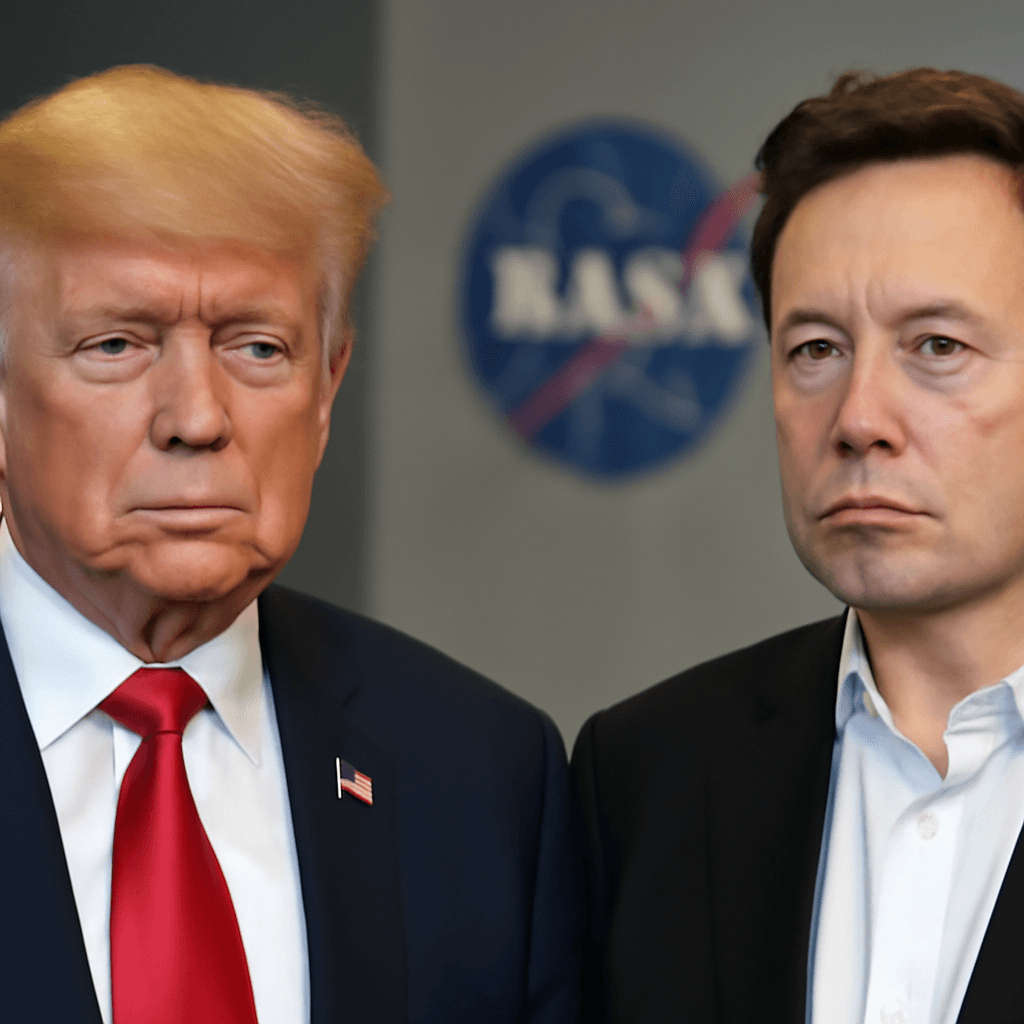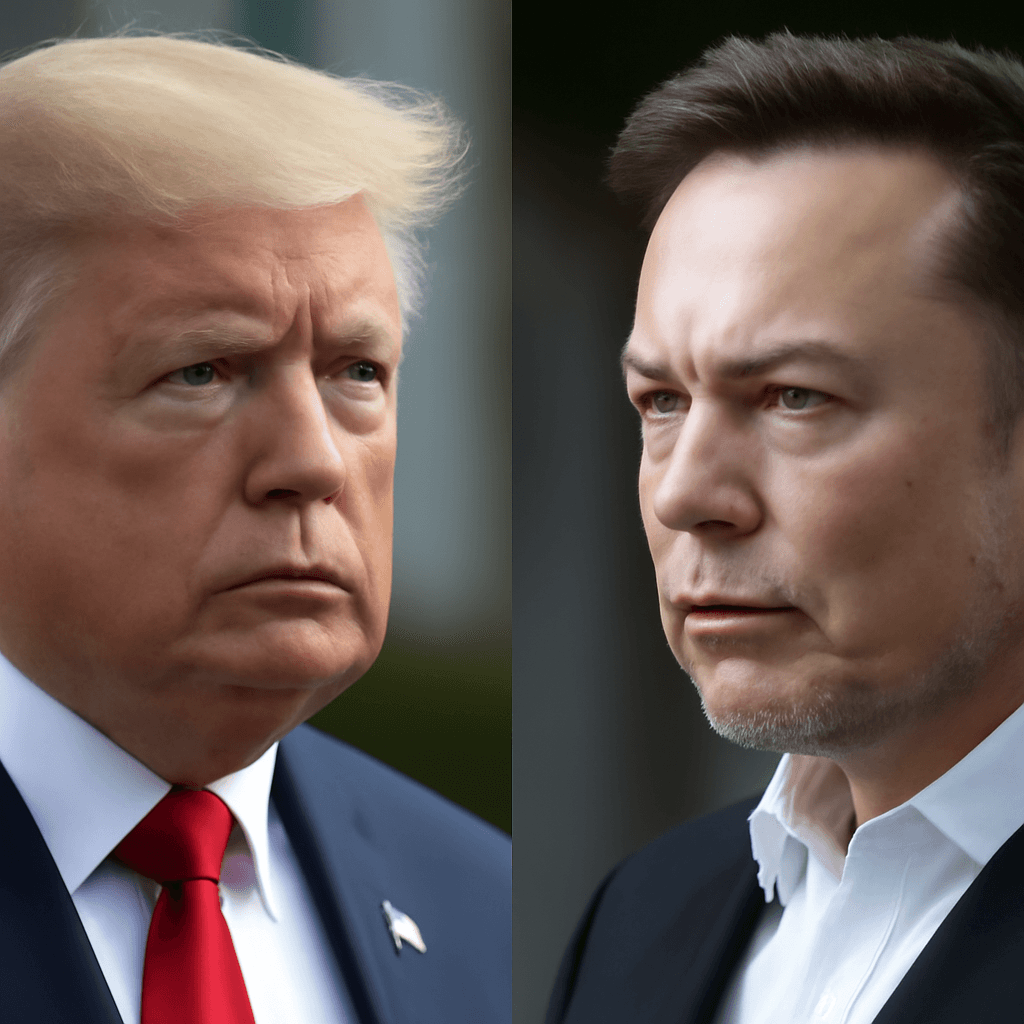Introduction to the Trump-Musk Feud and its Impact on US Space Initiatives
The recent public dispute between Elon Musk and former President Donald Trump has raised critical concerns regarding the future of key US space initiatives. This conflict threatens approximately $22 billion in federal contracts awarded to SpaceX, a crucial player in America's space exploration efforts.
The Origin and Escalation of the Dispute
The feud began after Musk's criticism of Trump's tax and spending policies, which quickly escalated into a heated exchange. During a meeting in the Oval Office, tensions flared, followed by Musk's outspoken remarks on social media platforms. Musk even threatened to withdraw SpaceX's Dragon spacecraft from service, a significant move considering the capsule's role in transporting astronauts.
Though Musk later reconsidered, choosing not to decommission the Dragon spacecraft after public appeal, the episode marked an unprecedented strain in the relationship between a leading commercial partner and the government space agency.
The Significance of SpaceX’s Dragon Spacecraft
Under a contract valued at around $5 billion, SpaceX's Dragon capsule stands as NASA’s only US-based vessel capable of ferrying astronauts to and from the International Space Station (ISS). The potential removal of Dragon from active use could disrupt the ISS program, an international collaboration spanning over two decades.
NASA currently relies on Russia’s Soyuz spacecraft as a backup, but the Dragon remains critical for maintaining autonomous US crewed access to orbit.
Potential Consequences of Contract Termination
If political retaliation from the former administration leads to canceling SpaceX contracts, it could significantly slow US progress in space exploration. The impacts include:
- Delay in astronaut transport and ISS operations
- Disruption of lunar and Mars mission timelines
- Loss of billions in federal funding and missed technological advancement opportunities
Moreover, the legality and practicality of abruptly ending these contracts remain in question. Former officials have indicated that such measures would face legal hurdles and could risk astronaut safety.
SpaceX’s Market Position and Resilience
Despite the feud, SpaceX has established itself as a global leader in space launch and satellite services. Having secured over $15 billion in NASA contracts, including development of the Falcon 9 rocket and the Starship system, the company dominates multiple sectors.
This diversified portfolio may provide some insulation from political disputes; however, lost contracts and shifting policies could nonetheless undermine strategic US space ambitions.
Political Dynamics and NASA Leadership
The feud has also affected NASA's leadership appointments. Jared Isaacman, a Musk ally and private astronaut candidate, was withdrawn as a nominee for NASA administrator amid the tensions.
Budget proposals under the previous administration have sought to curtail NASA's Artemis moon missions beyond the third mission, focusing instead on Mars exploration efforts that align with Musk’s vision. However, legislative bodies have countered by restoring funding for lunar missions, highlighting ongoing debates over the US space agenda.
Conclusion: The Importance of Collaboration Over Conflict
The relationship between government agencies and private aerospace companies like SpaceX is vital for the success of the US space program. Political disputes risking major contract cancellations could imperil key missions, astronaut safety, and the country’s leadership in space exploration.
Maintaining cooperative partnerships and focusing on shared objectives remains essential to advance space exploration and national security interests.

